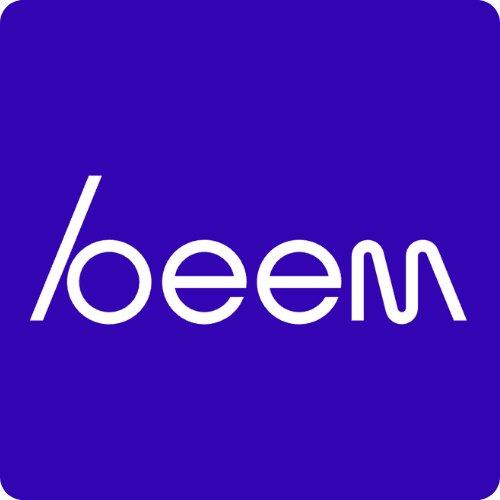
Tune.FM
Tune.FM is a decentralized music streaming platform and NFT marketplace built on the Hedera network. It’s designed to upend and modernize the music industry's traditional compensation model. Its core mission is to enable transparent, secure, and instant artist payments while fostering direct connections with fan communities.
The Tune.FM platform is built on the Hedera blockchain network and utilizes the Hedera Token Service (HTS) for its native JAM token ($JAM), which relies on embedded Hedera features to facilitate real-time micropayments for artists, who are compensated for every second their music is streamed.
Tune.FM’s "play-to-earn" model features high speed processing with comparatively low fees, thus potentially allowing artists to retain a significantly greater portion of their earnings when compared to traditional streaming platforms.
Beyond streaming, Tune.FM features an integrated NFT marketplace where artists can mint and sell digital music collectibles including songs, albums, artwork, and exclusive fan experiences such as backstage passes via JAM tokens. For listeners, Tune.FM offers a platform for new music discovery, direct artist interactions and support, and a way to earn JAM tokens through fan engagement.
Project Information
Related Projects

The Hyperledger Fabric plugin for Hedera Consensus Service (HCS) enables Hyperledger Fabric networks to utilize the Hedera public network for transaction ordering. This plugin allows developers to replace or augment traditional Fabric ordering services such as Raft or Kafka with HCS, leveraging Hedera's asynchronous Byzantine Fault Tolerant (aBFT) consensus mechanism.
The core function of the plugin is to have Fabric orderer nodes submit endorsed transactions to a designated topic on the Hedera Consensus Service. HCS then assigns these transactions a unique, immutable, and verifiable consensus timestamp and sequence. Fabric orderers subscribe to this topic via a Hedera mirror node, retrieve the ordered transactions, and use this sequence to consistently form blocks and propagate them within the private Fabric network.
By integrating HCS, Hyperledger Fabric applications gain several benefits including enhanced trust and decentralization in the ordering process, public verifiability of transaction sequences for increased auditability, and potentially reduced operational complexity compared to managing a traditional private ordering service.

Hyland is a leading content services provider founded in 1991 and headquartered in Westlake, Ohio. It develops software solutions that help organizations manage content, automate processes, and make more informed decisions. Hyland serves a wide range of industries, including healthcare, financial services, government, and manufacturing, with a global presence and a large, diverse customer base.
The company's core offering is a suite of content services platforms, most notably OnBase, which is designed to be a single enterprise information platform for managing content, processes, and cases. Hyland's services include intelligent document capture, workflow automation, case management, and secure document archiving. A key product is Hyland Credentials, a solution that uses blockchain technology to issue and verify digital records, such as academic transcripts and professional certifications, in a secure and tamper-proof manner.
The company's blockchain solutions are built on the open-source Blockcerts standard, which is designed to be blockchain-agnostic, thus allowing for interconnectivity with the Hedera blockchain network.
.png)
Safe Health Systems is a digital health and connected diagnostics company. In collaboration with Mayo Clinic, Safe Health developed the SAFE platform. The company's mission is to empower individuals, private-sector organizations, and governments with technology that facilitates decentralized care models and improves patient outcomes on a large scale.
The company provides a comprehensive Connected Care Platform that enables the rapid deployment of specialized digital health applications. Key services include integrated at-home and point-of-care diagnostic testing, remote patient monitoring, and telehealth experiences. The platform is designed for interoperability, allowing it to connect with and integrate siloed health data from various systems, including Electronic Health Records (EHRs). Safe Health also developed HealthCheck, a smartphone and desktop app.
The company utilizes the Hedera Consensus Service (HCS) to create an immutable and verifiable log of patient information and unique health identifiers. This integration allows Safe Health to provide a high level of trust and data integrity for all stakeholders. By logging events and health records on the Hedera network, Safe Health can cryptographically prove the authenticity of data in real-time while preserving patient privacy, meeting regulatory compliance standards like HIPAA, and ensuring a secure foundation for its digital health solutions.

Beem is a versatile Australian digital wallet owned by Digital Wallet Pty Ltd and now part of Australian Payments Plus, a member of the Hedera Governing Council and the collective that also includes BPAY Group, eftpos and NPP Australia.
It enables Australians to pay, request, transfer and split money instantly by using familiar contact names instead of BSB and account numbers. The app also supports BPAY for bill payments and offers features such as rewards and cashback through Beem Rewards and Cashrewards, loyalty and gift card storage, animated stickers and group expense management.
Eftpos acquired Beem in 2020 to expand into digital wallet services and leverage its payments infrastructure for faster growth. Since then it has been downloaded more than 1.4 million times and has facilitated over US 1 billion in transactions. Australian Payments Plus operates a Hedera network node in Australia and has trialled the Hedera Consensus Service and an Australian dollar based stablecoin to enable secure and low cost micropayments, providing a potential foundation for future Beem innovations.
